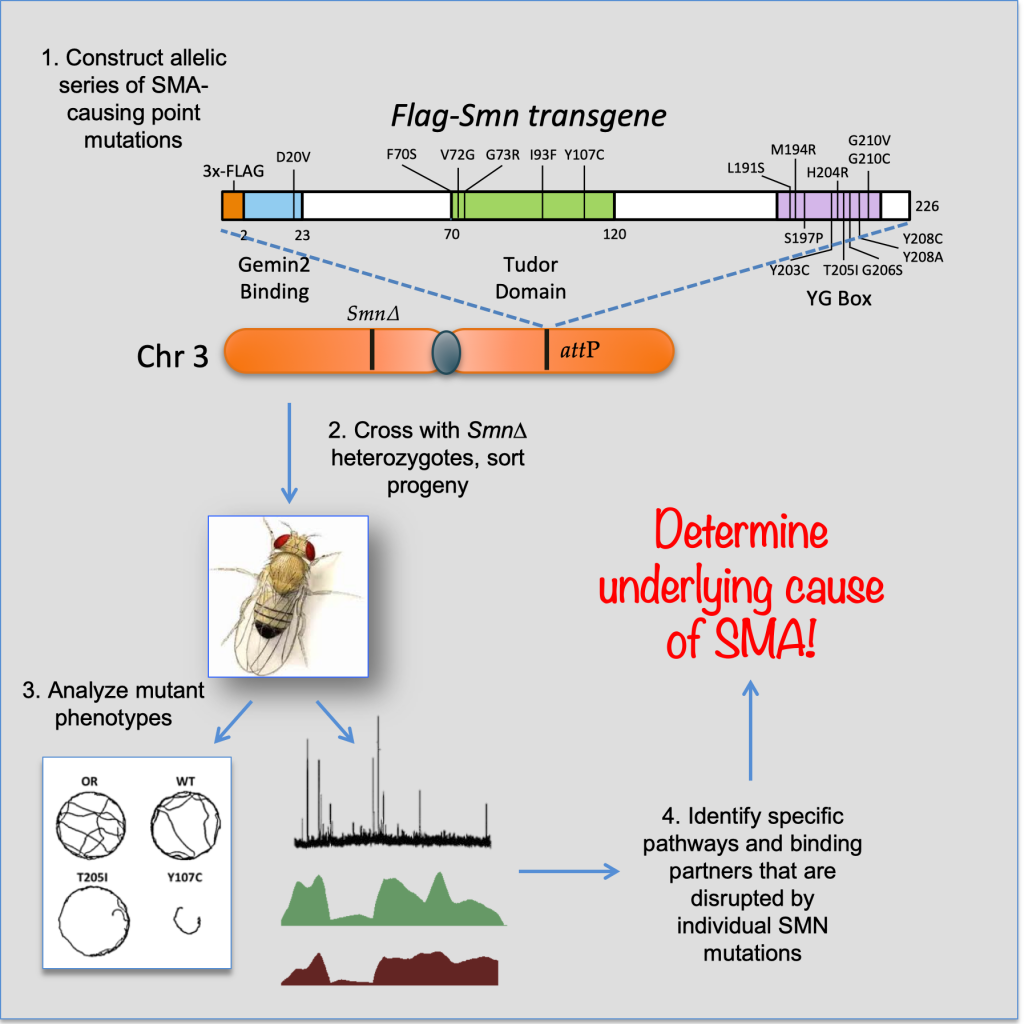Spinal Muscular Atrophy
Spinal Muscular Atrophy (SMA) is a devastating neuromuscular disease caused by a reduction in the expression levels of SMN protein. Depending on the amount of SMN produced, the disease symptoms can be mild to severe. SMA corresponds to a partial loss-of-function (hypomorphic) state wherein the severity of the disease is inversely proportional to the concentration of SMN protein in the cell. Therefore, small changes in overall SMN levels can have big effects on organismal phenotype (and clinical outcome). Because SMN is required for the biogenesis of small RNPs, the protein is critical to the functioning of all cells. However, recent work from our lab and others suggests that SMN may play additional roles in motor neurons and muscles. Using Drosophila as our primary animal model, we have generated an allelic series of over twenty SMA-causing point mutations (a subset of which are shown in the diagram above). Notably, the alleles are expressed in the absence of wild-type SMN, and collectively they recapitulate the full range of severity seen in human SMA patients, including late-onset phenotypes. These tools will allow us to better understand the molecular etiology of SMA.

